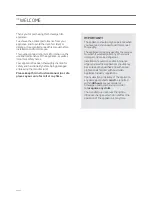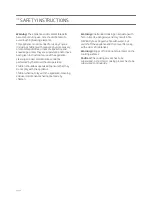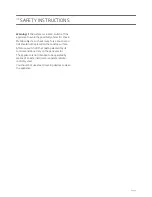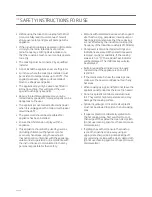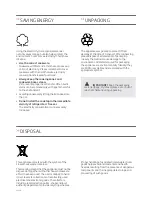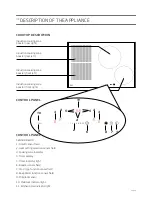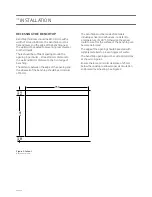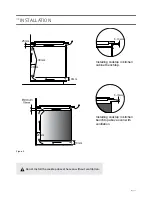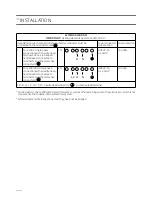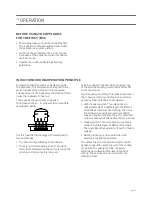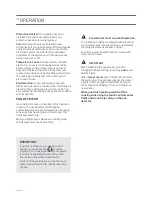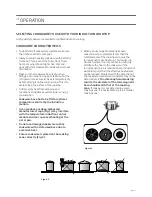
Page 6
• Before using the induction cooktop for the first
time, carefully read its user manual. This will
ensure user safety and prevent damage to the
appliance.
• If the induction cooktop is operated in immediate
vicinity to the radio, television set or other
radio-frequency-emitting device, make sure
that the cooktop’s touch sensor controls operate
correctly.
• The cooktop must be connected by a qualified
installer.
• Do not install the appliance near a refrigerator.
• Furniture, where the cooktop is installed must
be resistant to temperatures up to 100°C. This
applies to veneers, edges, surfaces made of
plastics, adhesives and paints.
• The appliance may only be used once fitted in
kitchen benchtop. This will protect the user
against touching any live parts.
• Repairs to electrical appliances may only be
conducted by specialists. Improper repairs can be
dangerous to the user.
• The appliance is not connected to mains power
when it is unplugged or the main circuit breaker
is switched off.
• The power cord should be accessible after
appliance has been installed.
• Ensure that children do not play with the
appliance.
• This appliance should not be used by persons
(including children) with physical, mental
or sensory handicaps, or by those who are
inexperienced or unfamiliar with the appliance,
unless under supervision or in accordance with
the instructions as communicated to them by
persons responsible for their safety.
• Persons with implanted devices, which support
vital functions (eg, pacemaker, insulin pump, or
hearing aids) must ensure that these devices
are not affected by the induction cooktop (the
frequency of the induction cooktop is 20-50 kHz).
• Once power is disconnected all settings and
indications are erased. When electric power is
restored, caution is advisable. If the cooking
zones are hot, “
” the residual heat indicator
will be displayed. The child lock key will also
be displayed.
• Built-in residual heat indicator can be used
to determine if the appliance is on and if it
is still hot.
• If the mains socket is near the cooking zone,
make sure the power cord does not touch any
hot areas.
• When cooking using oil and fat do not leave the
appliance unattended, as there is a fire hazard.
• Do not use plastic containers and aluminium
foil. They melt at high temperatures and may
damage the cooking surface.
• Solid or liquid sugar, citric acid, salt or plastic
must not be allowed to spill on the hot cooking
zone.
• If sugar or plastic is accidentally spilled onto
the hot cooking zone, first wait for it to cool,
then wipe off the spill with a clean, damp cloth
(do not use cleaning agents as these can cause
discolouration).
• If spillage has set hard, ensure the cooktop
is cool, then gently scrape away using an
appropriate sharp scraping utensil. Wipe off
any remaining residue with a clean, damp cloth
(do not use cleaning agents as these can cause
discolouration).
SAFETY INSTRUCTIONS FOR USE
Summary of Contents for INID77
Page 31: ...Page 31 NOTES...


